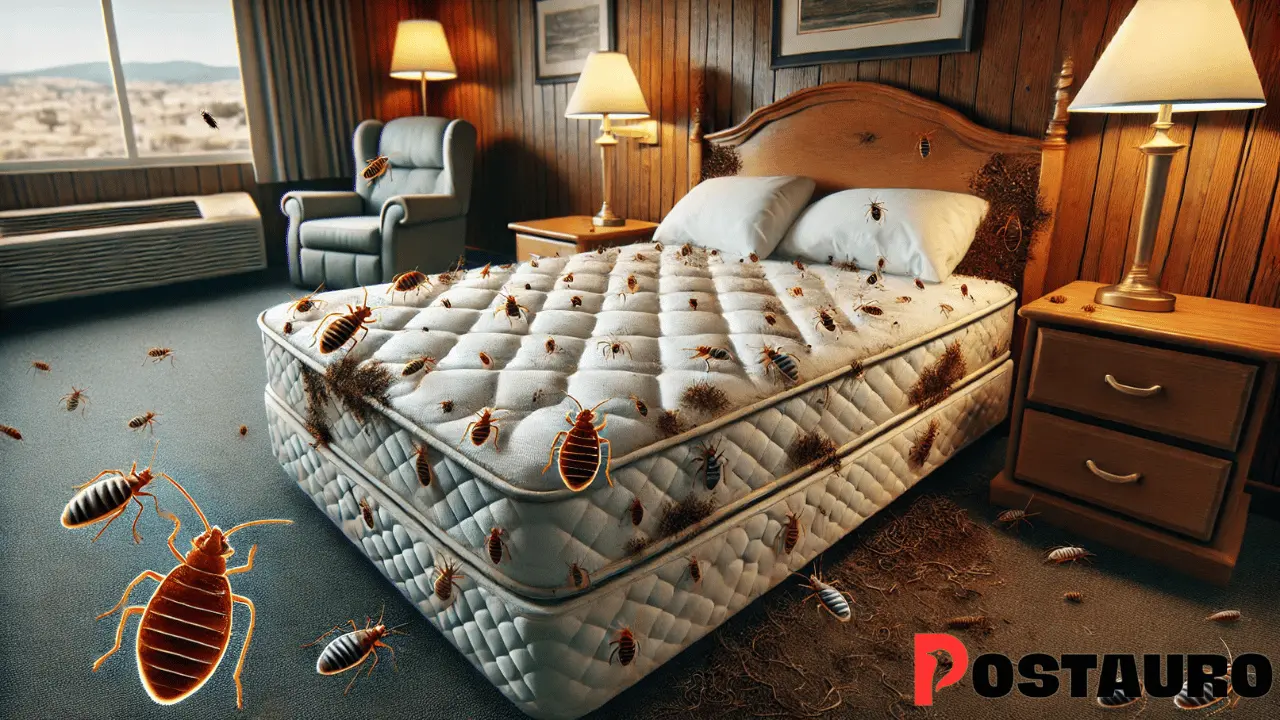Staying in a motel during a trip can be a convenient and affordable option for many travelers. However, there’s a lesser-known danger that can significantly impact your health and comfort: parasited motel malaise. This term refers to the discomfort and health issues caused by the presence of parasites in motels, such as bedbugs, fleas, and lice. In this article, we will explore the causes, effects, and preventive measures to protect yourself from parasited motel malaise, ensuring you have a safe and comfortable stay.
What Is Parasited Motel Malaise?
Parasited motel malaise refers to the physical and psychological discomfort that arises when you unknowingly encounter parasites in a motel. Parasites like bedbugs, fleas, and lice can infest motel rooms, causing a range of health issues, from skin irritations to allergic reactions. These pests often go unnoticed until it’s too late, leading to an unpleasant experience for travelers.
The malaise caused by these parasites can be more than just an inconvenience. It can lead to sleepless nights, anxiety, and in some cases, prolonged medical issues. Understanding the causes and identifying the symptoms of parasited motel malaise is key to preventing it.
Common Parasites Found in Motels
- Bedbugs Bedbugs are perhaps the most notorious culprits of parasited motel malaise. These small, reddish-brown insects feed on human blood, usually during the night. They hide in cracks and crevices around the bed, in mattresses, and behind headboards. Bedbug bites can cause itchy, red welts on the skin, often resulting in discomfort and sleeplessness.
- Fleas Fleas are another common parasite found in motels, especially those that allow pets. These tiny, wingless insects can jump great distances and cause intense itching when they bite. Fleas often infest carpets, upholstery, and bedding, and their bites can lead to allergic reactions or skin infections.
- Lice Lice, including head lice and body lice, are parasitic insects that can infest motel rooms, especially if the bedding is not properly cleaned. Lice feed on human blood and can cause itching, irritation, and in some cases, secondary infections. Lice are commonly spread through close contact or by sharing personal items like hats or bedding.
- Mites Mites are microscopic parasites that can also contribute to parasited motel malaise. Dust mites, in particular, are common in upholstered furniture and bedding, and they can trigger allergic reactions in susceptible individuals. Other types of mites, such as scabies mites, can cause intense itching and skin rashes.
Symptoms of Parasited Motel Malaise
The symptoms of parasited motel malaise can vary depending on the type of parasite involved. However, there are some common signs that can indicate the presence of pests in your motel room:
- Itchy skin: One of the most common symptoms of parasited motel malaise is intense itching, particularly in areas where parasites have bitten. This is often seen with bedbugs, fleas, and lice.
- Red, inflamed bites: If you’ve been bitten by a parasite, you may notice red, swollen bites on your skin. Bedbug bites, in particular, tend to appear in a line or cluster.
- Allergic reactions: Parasites like dust mites can trigger allergic reactions such as sneezing, runny nose, or watery eyes. In some cases, a more severe allergic reaction like asthma can occur.
- Rashes and scabs: Scratching bites or exposure to parasites like scabies mites can lead to rashes, open sores, or scabs on the skin.
- Psychological discomfort: The presence of parasites can also cause anxiety, insomnia, and a general feeling of unease. The psychological toll of worrying about pests can be just as damaging as the physical symptoms.
How to Prevent Parasited Motel Malaise
- Inspect Your Room Thoroughly Before unpacking your bags, take a few minutes to inspect your motel room for signs of pests. Check the mattress seams, bed frame, headboard, and any upholstered furniture for small dark spots (fecal matter), blood stains, or live insects. If you notice any signs of bedbugs or other pests, request a room change immediately.
- Use Protective Covers Consider using bedbug-proof mattress and pillow covers during your stay. These covers can help prevent pests from infesting your bedding and make it easier to spot signs of an infestation.
- Keep Luggage Elevated Avoid placing your luggage directly on the floor or bed. Use luggage racks or store your bags in the bathroom to minimize contact with potential pests. This can help reduce the risk of bringing pests home with you.
- Use Insect Repellent If you’re particularly concerned about pests, consider using insect repellent on exposed skin or clothing. Many insect repellents can help ward off bedbugs, fleas, and other pests.
- Report Any Issues Immediately If you find evidence of parasites in your room, report the issue to the motel management immediately. They should be able to offer you a different room or take steps to eliminate the infestation. It’s important to address the issue promptly to prevent further discomfort or health issues.
The Impact of Parasited Motel Malaise on Travelers
Experiencing parasited motel malaise can have a significant impact on a traveler’s well-being. The physical symptoms, such as itching, rashes, and allergic reactions, can make it difficult to relax and enjoy the rest of your trip. In severe cases, the psychological effects of worrying about pests can lead to insomnia, anxiety, and stress, making it harder to focus on the purpose of your travel, whether it’s work or leisure.
Additionally, the presence of parasites can lead to long-term health consequences if not addressed promptly. Infections from scratched bites or allergic reactions can require medical treatment, adding unanticipated costs and inconveniences to your trip. Therefore, it’s essential to take preventive measures before, during, and after your stay.
Conclusion
Parasited motel malaise is a serious concern for travelers who unknowingly encounter pests like bedbugs, fleas, and lice in their accommodations. These parasites can cause both physical discomfort and psychological distress, affecting the overall travel experience. However, by staying vigilant and taking proactive steps to inspect your room, use protective measures, and report any issues, you can significantly reduce the risk of encountering parasited motel malaise. Remember, prevention is key to ensuring a safe and comfortable stay during your travels.
FAQs
What should I do if I find bedbugs in my motel room?
If you discover bedbugs, report the issue to motel management immediately and request a room change or refund.
How can I prevent flea infestations in motel rooms?
Use luggage racks and avoid placing your bags on the floor or bed. You can also apply insect repellent to your skin or clothing.
Can mites cause allergic reactions in motels?
Yes, dust mites can trigger allergic reactions like sneezing, runny nose, and itchy eyes. Make sure to check for clean bedding and furniture.
What are the signs of parasited motel malaise?
Common signs include itchy skin, red bites, rashes, allergic reactions, and psychological discomfort from worrying about pests.
How can I check for pests before settling into a motel room?
Inspect the mattress, bed frame, headboard, and furniture for dark spots, blood stains, or live insects to identify signs of an infestation.







